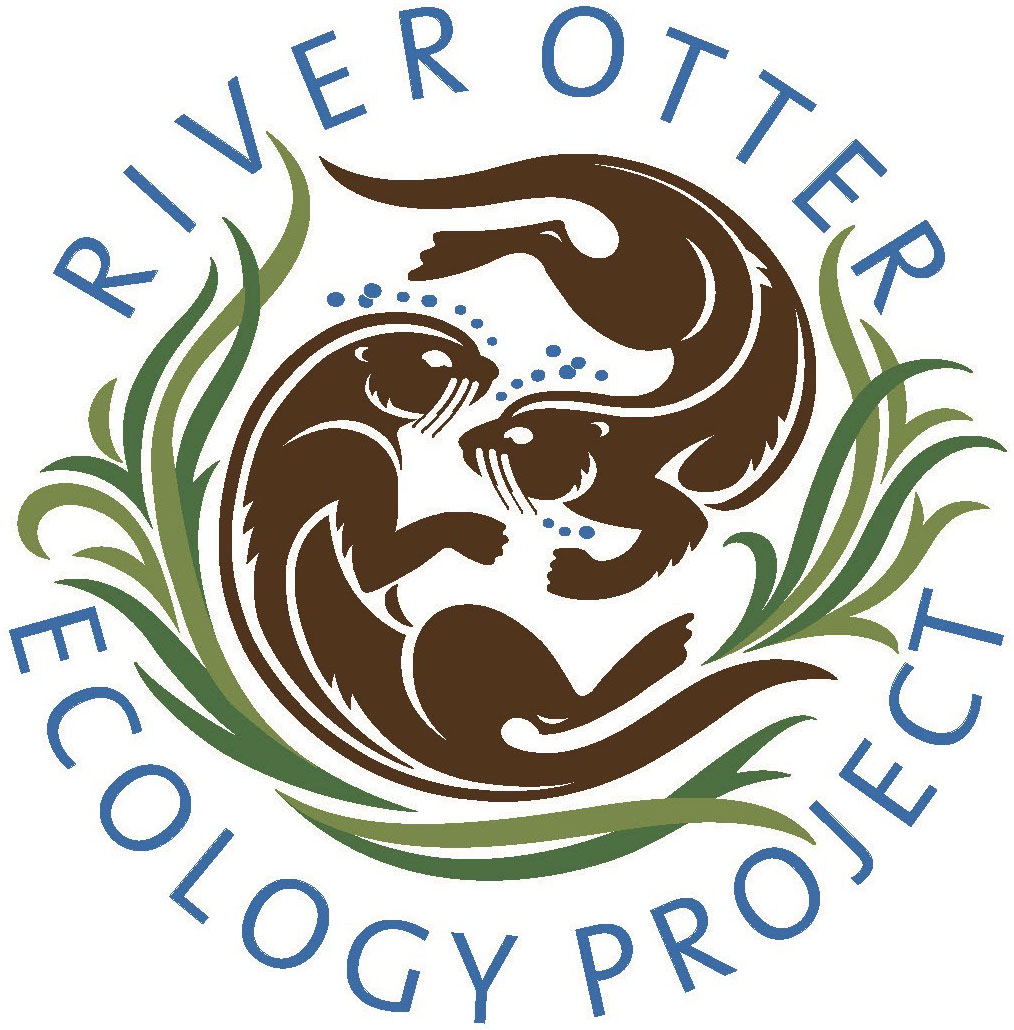Our History
Getting Started
Oh Otters! Who isn’t captivated and charmed by the slippy-slidey, voracious and curious, thick-skinned and dense-furred, bright and lithe figures of river otters? Otters have captivated humans throughout history, and the many Native American myths and legends featuring our brave, audacious and sometimes tricky carnivores are testament to their charismatic nature.
We, being scientists susceptible to adorable mammals, began our project with a question: Are river otter populations increasing in number and range in the SF Bay Area? We thought so…because despite agency maps showing no otters in most parts of Bay Area counties, we were aware of many sightings in Marin. And we thought there were probably many more than understood. Megan Isadore, Terence Carroll and Paola Bouley began the project in 2012, to discover the status of river otters in the Bay Area and tease out their ecosystem niche.
We hit the ground running, beginning our focal study research and community science Otter Spotter projects in the first year, and partnering with National, State and local parks, The Marine Mammal Center, California Academy of Sciences and others. Our first funders were the River Otter Alliance, Rose Foundation for Communities and the Environment, and the Point Reyes National Seashore Association, to whom we remain grateful for solid, on-going relationships.
We began a robust outreach and education effort, appearing at many environmental events, speaking engagements, schools, and appearing on radio, television, and in print media to get the message out. We collected a group of field and event volunteers to help, an enthusiastic and hands-on Board of Directors and an advisory board consisting of experienced and world-renowned otter specialists, geneticists, marine biologists, wildlife population experts, and a tracker.
Getting Established
In 2014 we received the John Muir Conservation Award in the nonprofit category, and Megan Isadore, our Director, was honored with the Gold Medal Award for Marin’s Environmental Leadership. We’ve twice received Congressional Certificates of Excellence for our work from Congressman Jared Huffman.
In 2015 we published our first research results in Northwestern Naturalist, a peer-reviewed journal of northwestern vertebrate biology. We also held our first major event, a Welcome Back, Otters! celebration at the Bay Model that attracted more than 200 people.
During 2016 and 2017 we expanded our network of partnerships, grew programs, recruited and trained more volunteers, and concentrated on increasing revenues to accomplish these important goals. We also expanded our Board with experienced development and science leads and invited a long-term volunteer lead to the Board.
In 2017 Megan Isadore was appointed Deputy Continental Coordinator for the IUCN/SSC Otter Specialist Group. Dr. Nicole Duplaix, Chair of the IUCN/SSC OSG, was an honored speaker at our second community awareness event held at the Berkeley Botanical Gardens.
Moving Forward
We have established our organization as a leading research and education, grassroots and community science project. Our research has provided stakeholders and agencies with new information on river otter range, health issues and behavior. We are currently embarking on establishing baseline prey species. Baseline research, coupled with long-term monitoring, provides stepping stones to exciting projects that allow us to understand complicated ecosystem relationships, such as whether and how river otter presence affects populations of endangered wildlife, particularly in restorations geared toward endangered species.
For example, river otters prey on salmon. They also prey on Signal crayfish, and where crayfish are plentiful, they eat them voraciously. Signal crayfish, in turn, are predators on salmon fry in streams. Information about interactions like these add to our understanding of the webs of relationships that form a healthy community of earth, water, air and living beings; in short, our community. And the health of our communities is paramount for us humans, as well as for otters. It’s for this reason that we say, “A healthy ‘ottershed’ is a healthy watershed.”
River otters are also an “indicator” species, meaning their presence can offer us valuable information as to the health of the watershed, and conditions that may affect otters or other species. Through lab testing of samples (collected without capturing or otherwise stressing the otters), we can discover whether various diseases, some of which affect humans or other wildlife, occur in local areas. in partnership with The Marine Mammal Center, we are already surveilling for two families of bacteria that can affect human health; Vibrio and Salmonella. River otters can provide clues as to whether harmful chemical pollutants like mercury and PCBs persist in our watersheds. We also work with CDF&W Wildlife Investigations Labs to seek further information about causes of illness or injury to river otters. Wildlife are often the first to succumb to various pathogens, and river otters happen to be one of the species that can help us discover new or emergent pathogens in our environment.
We most certainly have an ambitious research agenda, which is of great importance to our mission of supporting watershed conservation. We cannot conserve a system we do not understand. Therefore, of equal importance is our vision to engender a love and appreciation for conservation through a meaningful relationship with otters and their habitat. Studies have shown that people are more likely to support conservation when they connect conservation issues with a landscape or an animal to which they relate. Thus, all of our education, field trips, presentations, volunteer opportunities and outreach are geared toward furthering this crucial relationship.
We’re an energetic organization, and we look to improving our understanding of our environment in order to achieve conservation goals. With your support, we will continue to achieve successes and milestones along that path.
The River Otter Ecology Project is a registered 501 (c)(3) EIN #45-4997526 non-profit organization dedicated to the welfare of river otters and our watershed. Our organization is not affiliated with any other otter-related research group or community outreach organization.
© 2024 River Otter Ecology Project
